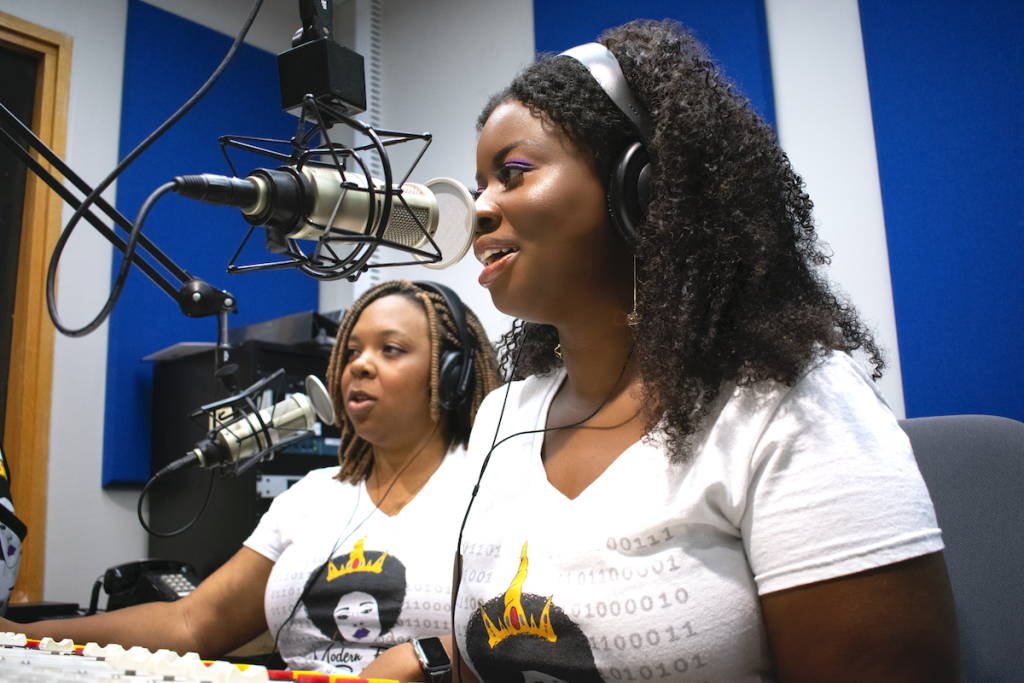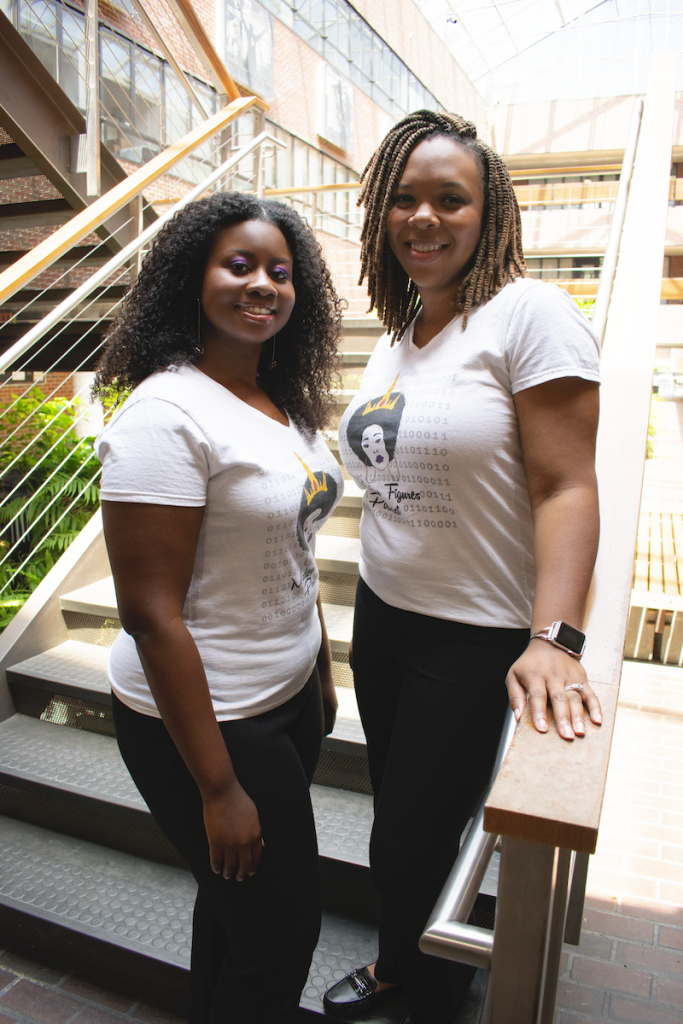 Kyla McMullen, Ph.D., an assistant professor, and Jeremy A. Magruder Waisome, Ph.D., a postdoctoral associate, who are members of the Institute for African-American Mentoring in Computing Sciences (iAAMCS), host the Modern Figures Podcast, which is sponsored by the National Center for Women & Information Technology (NCWIT).
Kyla McMullen, Ph.D., an assistant professor, and Jeremy A. Magruder Waisome, Ph.D., a postdoctoral associate, who are members of the Institute for African-American Mentoring in Computing Sciences (iAAMCS), host the Modern Figures Podcast, which is sponsored by the National Center for Women & Information Technology (NCWIT).
What is the Modern Figures Podcast?
Modern Figures podcast is a platform highlighting the stories of Black Women in Computing (BWIC) to inspire the next generation of the advanced technology workforce.
What led you to start the project?
We were approached by representatives from our sister organization, NCWIT, about the opportunity to develop something to support young women and girls who identify as black. We had several conversations about the type of endeavor we’d like to pursue, our audience, and our capabilities. Ultimately, because of the resources at the UF College of Journalism and Communications, we could easily produce a podcast.
What are the requirements for being a guest on the podcast?
Our guests are members of the BWIC community and allies to that community. Beyond that, there are no specific requirements.
How do you find potential guests?
We leverage our connections within the BWIC space, because of our existing networks. But we have solicited recommendations from our listeners, some of whom have come and interviewed. We also meet people at conferences and events and invite anyone we feel would be a great guest and is willing to share.
What do you hope to accomplish with this podcast?
Our hope is twofold. First, to elevate the inspirational stories of incredible Black women in computing-related disciplines and their allies. And second, to inspire our listeners through these stories of courage, resilience, ingenuity, persistence and strength. Overall, it’s to show everyone that there is no single story that defines someone in computing. Everyone’s story and contributions to this discipline are valid and valued.
How does this complement your teaching/working for the university?
Kyla: The podcast serves as a resource to have deeper conversations with students who feel that they don’t fit the typical image of a “computer scientist.” After students discover the podcast, they usually come to me with all smiles and wanting to engage more about me, my story and how they can fit into the computer science tapestry.
Jeremy: Modern Figures Podcast fits directly in line with my work at UF. As someone who is shifting their research area into the broadening participation space, I’m considering ways in which this type of work can be valued within the academy and beyond. We are looking at ways to evaluate the experiences of our listeners and guests, which will likely involve some type of qualitative methods (totally outside of my wheelhouse). Luckily, we have an experienced team of sociologists and educational researchers who are helping us design our future studies.
How often do you broadcast?
We release episodes weekly during “seasons.” Our first season strategically aired in February for Black History Month and lasted through March, Women’s History Month. We’re hoping to launch our second season in October.
 How can people tune in?
How can people tune in?
You can find episodes of Modern Figures Podcast on Spotify, Google Podcasts, Apple Podcasts, and more. To find out more information visit our website: modernfigurespodcast.com where you can listen, subscribe, and learn more about who we are and what we’re doing.
What target audience are you hoping to reach?
Though our target audience is young women and girls, we hope that we are also inspiring the young at heart.
Who funds the podcast?
The podcast is currently funded by NCWIT but we welcome additional sponsors to help improve the quality of the show.
What kind of topics do you discuss?
Guests are invited to share their stories and perspectives on topics such as technical areas (affective computing, augmented and virtual reality, robotics, social media analytics, cybersecurity, and non-traditional computing careers), broader issues (gender diversity in gaming, intersectionality, algorithm bias, inclusive design, computing and social justice), and personal challenges (work/life balance, surviving the culture of higher education, isolation in the computing fields).
What has been your favorite episode so far?
Kyla: That’s a hard question. Definitely the episode with Dr. Angelique Johnson because we did a LOT of laughing that day. She’s a lady boss who started her own tech company with just a dollar and a dream.
Jeremy: My favorite episode is Jamika Burge’s episode entitled, “Computer Science is for Everyone,” because she’s an incredible storyteller. So much of her story resonated with me as a Southern girl with big city aspirations.
Is there anything else you would like people to know about the podcast?
Kyla: Engagement! We love to hear from listeners and engage in conversation about topics for the future, new guests, and just the overall opinion about the show. Without listeners, we’re just two weird people in a room talking to each other.
Jeremy: My primary message to people who ask about the podcast is that it truly is for everyone. We try to use language that anyone can understand because we want to invite everyone to learn more about computing and the opportunities it can provide. I also warn people to expect lots of laughs! We like to have fun and I think it shows.
